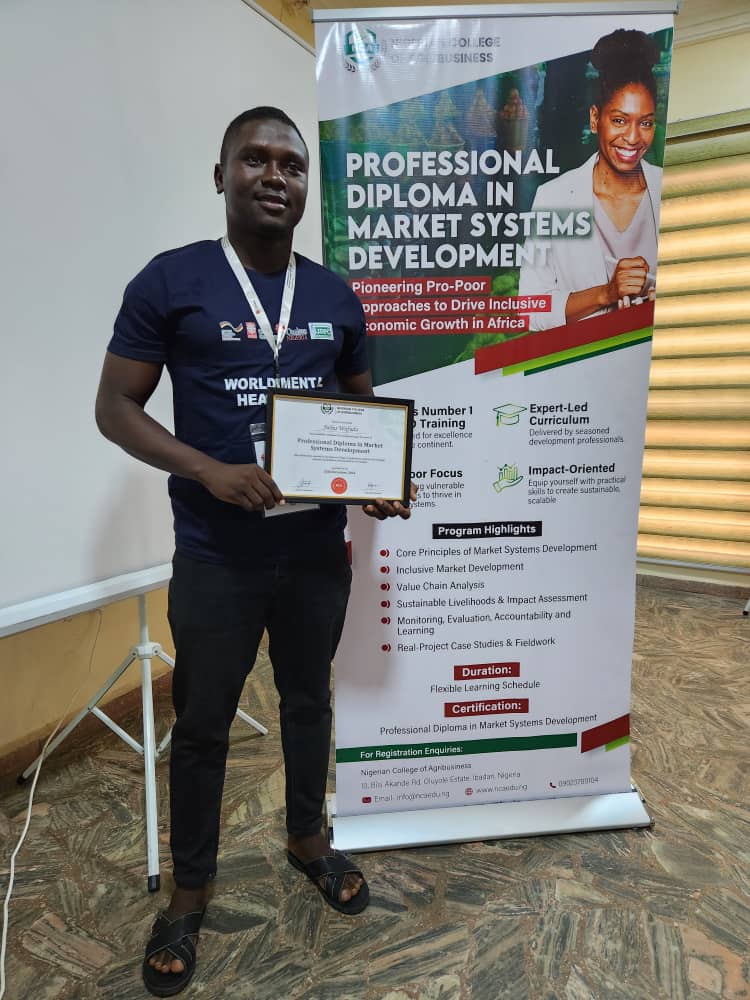Start Dates
Duration
Fees
Learning Activities
Mastering the Art and Business of Profitable & Sustainable Aquaculture
The global demand for fish and seafood continues to rise, making aquaculture one of the fastest-growing agricultural industries worldwide. However, many fish farmers struggle with high operational costs, water quality management, disease outbreaks, feed efficiency, and market access.
The Fish Farm Management Program is a practical, in-person training program designed to equip fish farmers, aquaculture entrepreneurs, farm managers, and investors with the technical expertise, business acumen, and sustainable farming strategies to establish and manage highly profitable and efficient fish farms.
This immersive, hands-on training integrates scientific knowledge with real-world applications, ensuring participants develop the skills to increase fish yield, minimize production risks, optimize feed conversion, and access lucrative local and international seafood markets.
By the end of the program, graduates will earn a Fish Farm Management Certification, positioning them as leaders in commercial and sustainable fish farming.

Learn best practices in pond, tank, and cage fish farming for maximum productivity.
Improve feed conversion ratios, water management, and disease control to minimize losses.
Develop budgeting, investment strategies, and business models for sustainable growth.
Business Planning & Farm Setup for Fish Farming
Water Quality & Environmental Management in Fish Farming
Fish Nutrition, Feeding Management & Growth Optimization
Disease Prevention, Health Management & Biosecurity
Fish Harvesting, Processing & Value Addition
Market Development, Branding & Sales Strategies for Fish Farming

No other institution in Africa offers such a comprehensive approach to agribusiness and development sector education as the Nigerian College of Agribusiness. We provide a unique blend of academic rigor, practical expertise, and industry connections. Here, you will learn from experienced faculty members who are experts in their fields and deeply engaged with the latest advancements in their industries.
We leverage interdisciplinary knowledge and the latest research to enhance our programs, ensuring they are relevant and impactful. At NCA, you will continuously engage with thought leaders who are constantly shaping the dynamics of their industries and after graduation, you will be a life-long member of a vibrant alumni community that continually foster cross-disciplinary learning and networking.
STEP 1: Complete the Application for Admission Form for the course
STEP 2: A non-refundable application fee of N20,000 applies and will be deducted from the tuition upon enrollment. This is payable into
Zenith Bank
Account Name: Nigerian College of Agribusiness
Account Number: 1228461510
STEP 3: Attach receipt of Application fee with your highest academic credential and submit to: [email protected]
STEP 4: Upon successful evaluation of your application, you will receive your Admission Letter indicating acceptance into the program. The Letter will also contain details of enrollment into the Course.
Click on the link below to fill the application form for this course
Local: N450,000
International Students: $400
Get monthly marketing tips and exclusive discounts straight to your inbox

Our mission is to cultivate a vibrant, sustainable and profitable agribusiness sector that drives economic growth and social progress across Africa and beyond.
We are committed towards educating a new generation of agribusiness sector leaders that will transform the economic fortunes of the African continent
© NCAEDU 2023 All Rights Reserved.